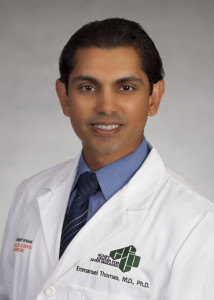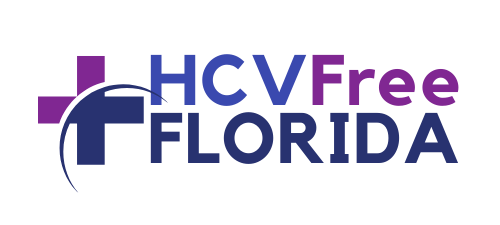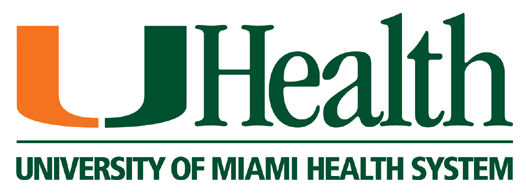Tag Archives: HIV
The University of Miami Miller School of Medicine was awarded the Gilead Sciences “FOCUS Grant” to support identifying HIV and Hepatitis C infected patients, HIV and Hepatitis C testing, and testing-related services.
The University of Miami Miller School of Medicine has been awarded a $299,220 grant from Gilead Sciences, Inc., to develop a replicable model program that embodies best practices in HIV and/or hepatitis screening and linkage to care. The award is provided through Gilead’s Frontlines of Communities in the United States (FOCUS) Program. The grant application described that a growing body of research has shown that opt-out testing can play a strong role in getting more individuals tested, extending earlier and better care to people who have been infected, improving their quality of life and promoting better disease management. The FOCUS program will support local initiatives to identify and link to care patients infected with HIV and hepatitis C (HCV) at the University of Miami Miller School of Medicine Emergency Room while developing and promoting a replicable model program that embodies best practices in HIV and HCV.
Dr. Dushyantah Jayaweera M.D., Senior Associate Dean for Research said, “We are thankful to Gilead for this grant, which will enable UM to better serve patients and improve their quality of life. The Centers for Disease Control and US Preventive Services recommendations, backed by this key support from Gilead, will help our caregivers to more effectively address the health and wellness needs of these patient populations throughout South Florida. We are thankful to Gilead for this grant, which will enable UMMSM to better serve patients and improve their quality of life. The Centers for Disease Control and U.S. Preventive Services recommendations, backed by this key support from Gilead, will help our caregivers to more effectively address the health and wellness needs of these patient populations throughout South Florida.”
Dr. Emmanuel Thomas M.D. said, “We are grateful to Gilead for granting these funds. These dollars will enable us to develop a program structured to deal with the current gap in care caused by the inability to identify HIV and Hep C-infected individuals. We hope to extend this funding to include patients with Hepatitis B in the near future.”
As described in the Gilead grant application, “a growing body of research shows that opt-out testing can play a strong role in getting more individuals tested, extending earlier and better care to infected individuals, improving quality of life, and promoting better disease management that reduces new infections. In light of the 2006 Centers for Disease Control (CDC) recommendations for routine opt-out HIV testing, the 2012 CDC recommendations for HCV screening, the US Preventive Services Task Force recommendations for routine HIV and HCV screening, and other recognized best practices in HIV and HCV screening”.
ALIGNMENT WITH NATIONAL EFFORTS
In light of the 2006 Centers for Disease Control (CDC) recommendations for routine opt-out HIV testing, the 2012 CDC recommendations for HCV screening, the U.S. Preventive Services Task Force (USPSTF) recommendations for routine HIV, HCV and HBV screening, and other recognized best practices, UMMSM will work to develop and promote a replicable model program that embody uses these recommendations and best practices in screening and testing for the viruses.
The rates of HCV infections are climbing in the U.S., according to the Centers for Disease Control and Prevention (CDC), with many health professionals describing the increase as an emerging public health crisis. Research suggests that the increase in HCV could be linked to the increase of injection drug use throughout the country.
ALIGNMENT WITH LOCAL EFFORTS
Emmanuel Thomas, M.D., Ph.D., FAASLD was recently invited to give an oral presentation, based on the abstract titled, “Hepatitis C Virus sustained virological response in the real-world uninsured patient population treated with direct acting antivirals,” at the annual American Public Health Association meeting in San Diego.
Because Florida has been hit hard by the opioid epidemic and Miami has one of the highest new HIV infections in the USA, identifying patients with HIV and hepatitis C is crucial to improving the overall health of the state. Testing at the University of Miami Miller School of Medicine is underway throughout the medical school.
“The FOCUS partnership, in many ways, is our Medical School’s vision in action – bolstering the standing of the our institution as a community partner, while directly benefiting South Floridians,” Dr. Jayaweera professor in the Department of Infectious Diseases and a principal investigator on the FOCUS grant, said. “We leveraged departmental expertise and infrastructure to win this competitive grant, and in doing so, we have already increased our Emergency Department-based HIV and HCV testing significantly. With this ramped up testing, we have enhanced the care of South Floridians through increased detection of the diseases and linkage to care.” Dr. Jayaweera noted the importance of testing to inform those who did not know they were infected or at risk and the difference it can make in their life. “Currently, South Florida ranks first in the nation in the rate of new HIV infections,” he said. “A substantial proportion of these infections are acquired through injection drug use and needle sharing, which increases concern over possible co-infection with HCV. In addition to helping prevent disease transmission through early identification, our program also links patients to care, which is now more important than ever given that HCV is largely curable, and HIV can be managed as a chronic condition. Ultimately, we believe that scaled-up, electronic medical record-based screening and linkage to care will reduce morbidity and mortality associated with HCV and HIV in both Miami and South Florida grappling with the current opioid epidemic,” he said.
ABOUT GILEAD
Gilead Sciences, Inc. is a research-based biopharmaceutical company that discovers, develops, and commercializes innovative medicines in areas of unmet need. As a leader in developing therapies for HIV and chronic hepatitis C virus infection, Gilead is committed to helping ensure access to life-saving screening and care services for people who could benefit from them.
The biopharmaceutical company Gilead researches, develops, manufactures, and markets human pharmaceuticals for certain diseases, including the hepatitis C virus (HCV), hepatitis B virus (HBV) and the Human Immunodeficiency Virus (HIV). Gilead will provide these funds to UMMSM through its Frontlines of Communities in the United States (FOCUS) Program to financially support these efforts.
ABOUT FOCUS
FOCUS is an initiative of Gilead Sciences, Inc., which was created in 2010 to address the issue of HIV/AIDS transmissions and to inform those who did not know they were infected or at risk. In 2013, FOCUS also added hepatitis C testing per recommendation from the CDC and by the United States Preventive Services Task Force. The main goal was to make HIV and HCV screening a standard of care and to change public perceptions as well as overcome stigma that may have discouraged this type of testing.
Gilead launched the FOCUS Program in 2010 to address one of the most pressing problems driving HIV and acquired immunodeficiency syndrome (AIDS) transmissions. At the time, it was estimated that one in five HIV-positive Americans, or approximately 230,000 people, didn’t know they were infected. FOCUS was further expanded in 2013 to include HCV, and again in 2015 to include HBV, as a result of both the CDC and the USPSTF recommendations for testing those viruses. Today, FOCUS is a partner of more than 100 healthcare institutions, government agencies and community stakeholders to make routine HIV, HCV and HBV screening a standard of care practice, to reduce the number of undiagnosed individuals, to decrease the number of late diagnoses and ensure strong linkage to care, to expand open dialogue about the viruses, and to change public perceptions and overcome stigma.
In 2010, Gilead Sciences, Inc. launched the FOCUS program (On the Frontlines of Communities in the United States) to address one of the most pressing problems driving human immunodeficiency virus (HIV) and acquired immunodeficiency syndrome (AIDS) transmissions. At the time, an estimated one in five HIV-positive Americans, or approximately 230,000 people, did not know that he or she was infected. FOCUS was enhanced in 2013 to address Hepatitis C (HCV) and again in 2015 to address Hepatitis B (HBV) as a result of both the Centers for Disease Control and Prevention (CDC) and the United States Preventive Services Task Force (USPSTF) recommendations for HCV and HBV testing. FOCUS partners with over 100 healthcare institutions, government agencies and community partners to: make routine HIV, HCV, and HBV screening a standard of care for appropriate patient populations; reduce the number of undiagnosed individuals, decrease the number of those who are diagnosed late and ensure strong linkage to care; expand stakeholder dialogue on these issues; and change public perceptions and overcome stigma that may discourage testing.


U.Miami School of Medicine Awarded $2.5 Million Dollar NIH Award with Emmanuel Thomas, M.D., Ph.D. to help South Florida Community.
A team of Miller school specialists including Emmanuel Thomas, M.D., Ph.D., assistant professor of the Sylvester Comprehensive Cancer Center and the Schiff Center for Liver Diseases and Miami CTSI KL2 Scholar, Daniel Sussman, associate professor of clinical medicine in the Division of Gastroenterology, and Sonjia Kenya, Ed.D., M.S., M.A., assistant research professor of medicine, Director of Community Health Programs at Sylvester’s Jay Weiss Institute for Health Equity, and Education and Research Officer at the Miller School’s Office of Diversity and Multiculturalism, have developed the multi-modal strategy for the early detection and prevention of four health priority conditions: Hepatitis C Virus (HCV), colorectal cancer, Human Immunodeficiency Virus (HIV) and cervical cancer.
Dr. Thomas Presents Recent Work on Hepatitis B and C at HepDart 2015.
https://www.informedhorizons.com/hepdart2015/
Miami CTSI Awards Career Development Grant to Dr. Thomas.
Click here to see the original article.
The Miami Clinical and Translational Science Institute (CTSI) at the University of Miami has selected Emmanuel Thomas, M.D., Ph.D., assistant professor of cell biology, to be its newest Mentored Translational Research Scholar.
This KL2 program helps junior faculty develop successful careers as independent investigators by providing up to three years of renewable annual funds including 75 percent salary support for protected research time and additional funds to support research expenses and research-related travel.
Thomas will also benefit from an individualized career development plan, mentorship, educational programs, experiential training with established faculty researchers, and access to CTSI experts in epidemiology, research design, regulatory support, ethics and biostatistics.
To facilitate this innovative project on HIV pathogenesis, mentorship will be provided by Savita Pahwa, M.D., professor of microbiology and immunology, pediatrics and medicine, Director of the Miami Center for AIDS Research (CFAR) and Associate Director of the HIV/AIDS Institute, and Mario Stevenson, Ph.D., professor of medicine, Chief of the Division of Infectious Diseases in the Department of Medicine, Co-Director of the Center for AIDS Research and Director of the HIV/AIDS Institute.
Thomas will use his grant to study ways to minimize the development and progression of liver disease and liver cancer in patients that are coinfected with both HIV and Hepatitis C.
“Approximately 20 percent of individuals infected with HIV are also infected with Hepatitis C, and liver disease is now a major killer of HIV infected patients. Infection by both of these viruses significantly impacts our South Florida community,” said Thomas. “This project will identify new molecular targets that can be used therapeutically to prevent liver disease and liver cancer in coinfected patients.”
Raised in Miami-Dade County and a 2007 graduate of the Miller School of Medicine, Thomas has a strong commitment to improving the health of the local community. He says his award and the opportunity to collaborate with the CTSI will help advance two programs that are important to him.
The first is a translational research program, which aims at preventing liver disease and hepatocellular carcinoma. It leverages resources and clinical/scientific expertise from the Miami CTSI, the Schiff Center for Liver Diseases, the Sylvester Comprehensive Cancer Center and the Miami Center for AIDS Research.
The second is a community screening program that identifies Hepatitis C infected individuals and links them to care. It also pairs uninsured patients with assistance programs that subsidize the cost of medications.
The Mentored Translational Research Scholars program is managed by the Miami CTSI’s Research Education and Career Development program and directed by Gwendolyn Scott, M.D., professor of pediatrics and Director of the Division of Pediatric Infectious Disease and Immunology.












